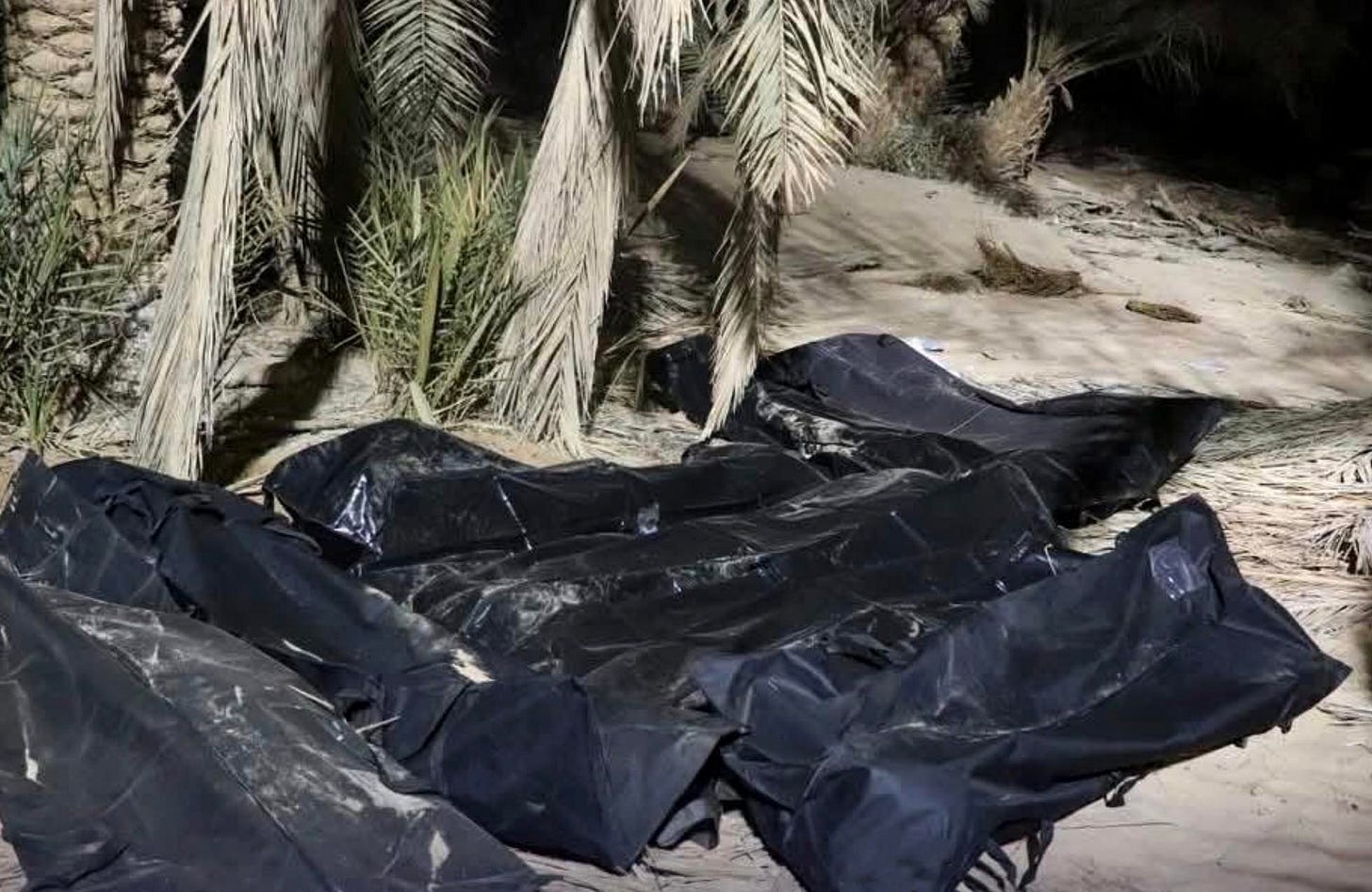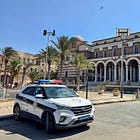Mass graves highlight the hidden danger migrants face in the desert
Authorities have arrested several people they believe to be connected to the deaths
Kiri Rupiah

Libyan police have unearthed two mass graves in the desert in the country’s south-east, near Al-Kufra, and recovered the bodies of at least 50 people who they say were shot dead or left to die by human traffickers. Authorities have arrested several people they believe to be connected to the deaths: a Libyan and two foreign nationals.
Most reporting on migrants deaths has focused on drownings during perilous crossings across the Mediterranean sea to Europe, and the human rights abuses that happen on the North African coast, especially when EU-funded Libyan coastguards try to stop people from making it across the sea.
But much of what actually happens inside the country remains hidden, says Franz Prutsch of the International Organisation for Migration (IOM).
It’s often just as horrifying, as the grisly discovery this week made clear.
The graves were discovered following a raid on a site in the area, where victims of human trafficking were being held. The Libyan attorney general’s office said that police rescued 76 people who were being held captive.
The raid and graves are just snapshots of the perilous land route and smuggling networks that run it. The IOM says that more than 22% of the migrant deaths recorded in Libya last year happened on land routes.
Reporting by many outlets including The Continent has shown that some of the violence and neglect that kills the migrants is by government forces in North Africa which have received hundreds of millions of euros over the past decade to “manage migrations”.
In some cases, their interceptions are brutally violent or end in so-called “desert dumps” where migrants are pushed back into the harsh desert where they risk death.
But it’s becoming increasingly clear that cynical official forces are far from the only risk migrants face: Since the Nato-supported toppling of Libya’s long-time dictator Muammar Gaddafi in 2011, the country has been fragmented between militia and political factions which contributes to widespread violence and the proliferation of criminal enterprises like human trafficking.





